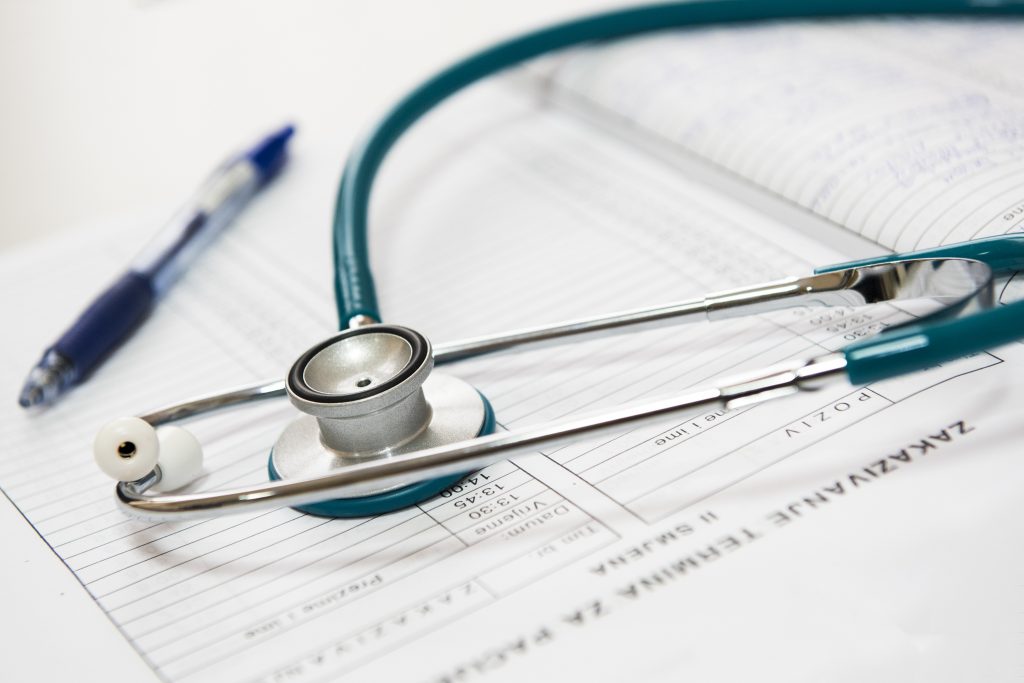Here at Irish Tax Rebates, we know the Irish Tax system inside out. We have over 20 years professional experience in the area of claiming tax back and generating tax refunds for a mixture of clients from both the public and private sector.
Over the last two decades, we’ve been asked all sorts of questions from those of you who want to get your money back. We’ve had so many interesting queries, that we thought we’d create a list of the most frequently asked questions about Irish tax in order to make it easier for you to navigate the complicated world of tax and claim tax back.
FAQs about Irish tax in general
1. What can I claim tax back on?
Tuition Fees at the standard rate of 20% once your course is on the approved list. Medical Expenses including GP visits, medication, A&E visits, minor procedures and surgeries. Pensions Contributions at the higher rate of tax are deducted from your gross income before that income becomes liable to tax. Dental expenses qualify for tax relief if they are non-routine procedures. Home Renovations such as painting, extensions, new kitchens, alarm installations, windows or doors.
2. Who is eligible to claim tax back?
Anyone who, over the last 4 years, has been taxed incorrectly while in employment, has paid emergency tax, has been made redundant, has experienced a gap in employment, has undertaken a fee-paying college course or has paid medical expenses
3. Can you claim tax back if you’re unemployed?
Yes. You are eligible to claim tax back for the last 4 tax years. The size of the tax rebate, if any, that you could receive will depend on the amount of time you were employed, how much tax you paid during that period and the amount of tax credits you have utilised.
4. Can I make a tax claim if I’ve left Ireland?
Yes. If you have lived and worked in Ireland over the last 4 years, you may be eligible for a tax rebate and can apply to claim tax back regardless of where you live now in the world.
5. How far back can you claim for a tax rebate?
You can only claim tax back for the previous four tax years. This makes it essential to get your paperwork in on time.
6. Can you tell how much I can get back just by looking at my p60?
No. The Revenue Commissioners abolished the P60 system in 2019 and replaced it with an online Employment Detail Summary, which summarises the tax and USC deducted from your income in the tax year. However, mistakes can easily be made on this, for example if your tax credits haven’t been assigned correctly. Luckily, Irish Tax Rebates can tell if you’ve overpaid your taxes.
FAQs about medical and dental taxes
7. Do I need proof from private scans?
Yes. Once you can provide evidence – receipts or other documentation – of incurring expenses over the last 4 years you might be eligible to claim tax back for 20% of fees relating to diagnostic procedures such as X-rays and MRI scans, carried out on the advice of a doctor or medical practitioner.
8. I already use ITR, can I send my medical expenses?
If you are already registered with us, then we have your prior authorization to review your tax details on the Revenue’s online system. Simply send us your medical expenses.
9. Can I use prescription claim forms as evidence of medical expenses, or do I need actual receipts?
While you can claim tax back on eligible expenses, you must send us your receipts as evidence.
10. What if you don’t have receipts?
If you cannot locate the receipts for medical or dental expenses, contact your doctor, clinic, chemist or dentist and ask them to re-send you a copy.
11. Can I claim tax back on my child’s medical expenses?
You can claim tax back on the cost of health expenses for yourself or those of a family member or any individual’s, as long as you paid for them.
12. Can you make a claim if you have a medical card?
Yes, but under certain circumstances like if you had a full medical card for even one day only in the tax year.
13. Can you claim for private assessments?
You can claim tax back at the standard rate of 20% on the costs of private speech and language therapy for a dependent child carried out by a qualified speech and language therapist and also on private hospital fees relating to maternity care.
14. Can I claim for my GP expenses this year?
You can claim tax back on medical expenses including GP visits, medication, A&E visits, minor procedures and surgeries.
15. Can you claim for any dental treatment?
Yes, as long as it is classified as a specialised treatment such as enhancements like bridges, crowns and veneers, as well as components like gold posts and inlays, or replacement tips. Root canals along with periodontal (gum) and orthodontic (tooth alignment – braces) treatments also qualify, as does the surgical extraction of wisdom teeth at a hospital.
16. Can I claim tax back for my children’s prescription glasses?
You cannot get tax relief for routine ophthalmic care but you can get tax relief for orthoptic or similar treatment where prescribed by a doctor.
FAQs about marital status taxes
17. Can my spouse claim for the home carer tax credit?
A Home Carer Tax Credit can be claimed if one spouse or civil partner works in the home caring for one or more dependent people.
18. What is the tax credit for a single person in Ireland?
If you are single and in employment you are entitled to an annual tax credit of €1,650 and the Employee Tax Credit of €1,650. This means that when the total amount of income tax you owe is calculated, €3,300 will be deducted from this.
What are the tax assessment options for married couples?
If you are married or in a civil partnership, you have multiple options including being separately assessed or being jointly assessed and sharing tax credits and tax bands between you and your spouse or civil partner.
20. I have recently gotten divorced, how will this impact my taxes?
Those previously assessed as single persons, will experience no change in their tax assessment after separation. For those previously jointly assessment, one person – ‘the assessable spouse’ – is accountable for tax purposes and entitled to the married person’s tax credit and double-rate bands for the full year in which they separate, while the other is taxed on their own income from the date of separation, entitled to the full single person’s tax credit and taxed under the single-rate bands.
21. Can I claim tax back as a single parent?
Separated/divorced and single parents can benefit in future years from the Single Person Child Carer Credit (SPCCC) – a tax credit aimed at single parents. The credit is granted to the main person who has custody of and maintains the well-being of the child, by default. This primary carer can chose to transfer their credits to a secondary claimant, provided that the child resides with that person for a period of no less than 100 days on aggregate in a given year and all conditions are satisfied by Revenue.
FAQs about emergency tax
22. Why have I been put on emergency tax?
When you get a new job, your new employer may not yet have received the sufficient information required for you to benefit from your full scope of tax credits. As a result, they’re required to deduct tax on the emergency basis for a temporary period of time.
23.What is emergency tax?
Emergency tax is the taxation of all of your earnings at the higher rate of tax for a temporary period. A temporary tax credit is given for the first month of employment but tax deductions are increased substantially from the second month on.
24. I’ve been put on emergency tax and do not have a P45 yet what do I do?
In order to avoid emergency taxation, you must give your employer an up-to-date Certificate of Tax Credits and Cut-Off Points or a P45. You should receive a P45 from your previous employer.
25.What percentage does emergency tax take?
Emergency tax is the taxation of all of your earnings at the higher rate of tax for a temporary period.
FAQs about claiming tax back in Ireland
26. How do I claim tax back in Ireland?
Claiming tax back can involve a lot of chasing Revenue. This is why a lot of people in Ireland don’t pursue claiming tax back on expenses. However, Irish Tax Rebates can do all the hard work for you. Simply fill out our online application form and we will take care of the hard work for you. We can claim back all applicable credits or deductions. If you aren’t owed any tax back, there’s no fee applied.
27. How long does it take to get your tax refund?
We aim to confirm your rebate within 7 working days. As soon as Revenue confirm that a rebate is due, we notify you. Once all your documents are in order, if you are due a rebate, you will receive your rebate within a few days.
28. How will I get paid?
Any tax back you are due will be paid to you by cheque.
29. How to I claim tax back for the last four years?
Simply complete our online application form, which authorises us to review your taxes. We then review your tax details on the revenue’s online system. As soon as Revenue confirm that a rebate is due (usually within 7 working days), we’ll let you know and send your rebate directly to you, less our fees
30. I did this process last year. Do I need to do it again this year?
No, the Irish Tax Rebates team will review your taxes each year and send you an update if you are due a rebate. More information for returning customers can be found here.
Got a question we haven’t covered?
If you have any questions or if you’re still unsure about how to claim tax credits and you would like Irish Tax Rebates to claim tax credits on your behalf from the past four years, contact Irish Tax Rebates today. Our friendly team of tax experts will be more than happy to help. We have the highest average tax rebate in Ireland and the lowest fee; and if you aren’t owed any tax back, there is no fee applied. To get the ball rolling, fill out our 60 second application form:
New Customers: Apply here.
Existing Customers: Apply For Additional Rebate








